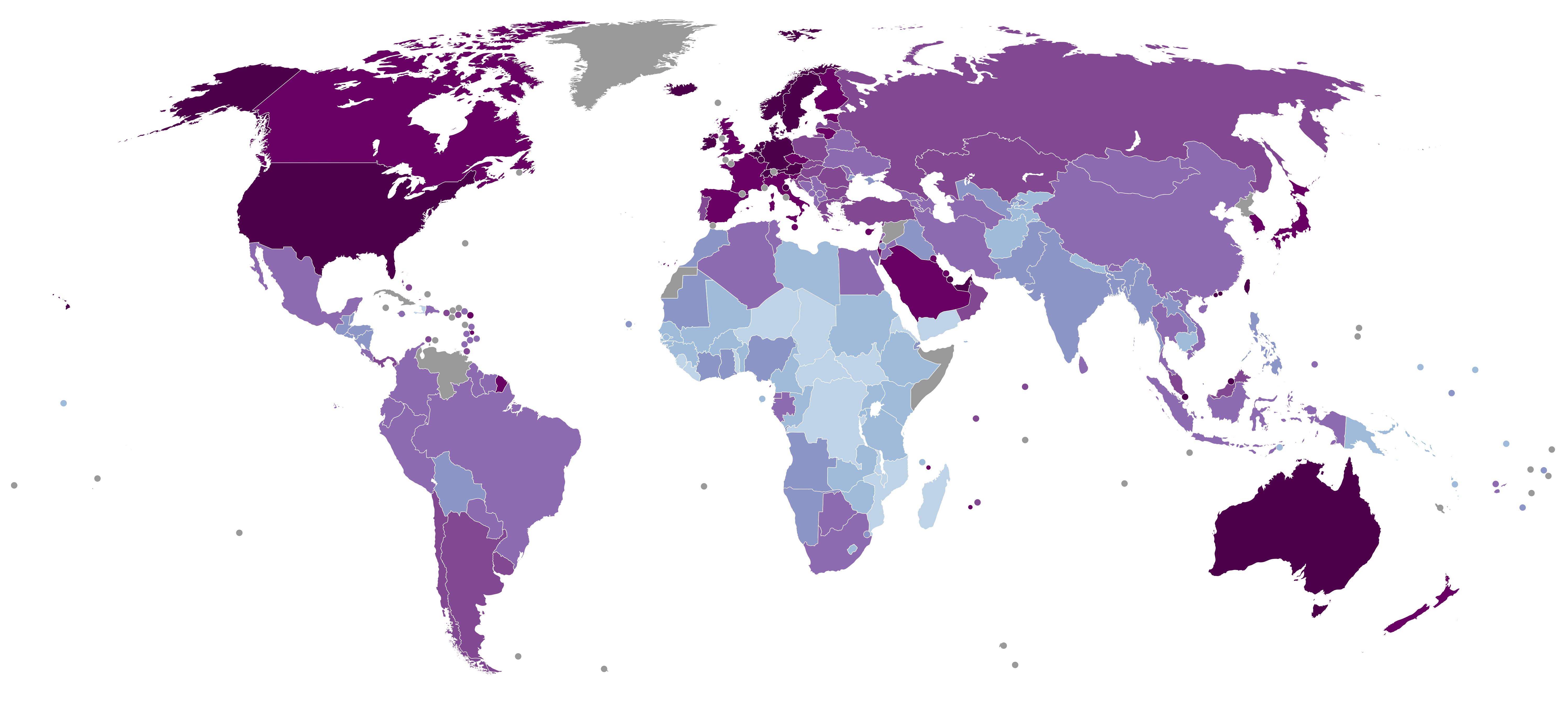
Economy
An economy[a] is an area of the production, distribution and trade, as well as consumption of goods and services. In general, it is defined as a social domain that emphasize the practices, discourses, and material expressions associated with the production, use, and management of scarce resources.[3] A given economy is a set of processes that involves its culture, values, education, technological evolution, history, social organization, political structure, legal systems, and natural resources as main factors. These factors give context, content, and set the conditions and parameters in which an economy functions. In other words, the economic domain is a social domain of interrelated human practices and transactions that does not stand alone.
This article is about the word in goods and services meaning. For other uses, see Economy (disambiguation).
Economic agents can be individuals, businesses, organizations, or governments. Economic transactions occur when two groups or parties agree to the value or price of the transacted good or service, commonly expressed in a certain currency. However, monetary transactions only account for a small part of the economic domain.
Economic activity is spurred by production which uses natural resources, labor and capital. It has changed over time due to technology, innovation (new products, services, processes, expanding markets, diversification of markets, niche markets, increases revenue functions) and changes in industrial relations (most notably child labor being replaced in some parts of the world with universal access to education).
Elements
Types
A market economy is one where goods and services are produced and exchanged according to demand and supply between participants (economic agents) by barter or a medium of exchange with a credit or debit value accepted within the network, such as a unit of currency.[22] A planned economy is one where political agents directly control what is produced and how it is sold and distributed.[23] A green economy is low-carbon and resource efficient. In a green economy, growth in income and employment is driven by public and private investments that reduce carbon emissions and pollution, enhance energy and resource efficiency, and prevent the loss of biodiversity and ecosystem services.[24] A gig economy is one in which short-term jobs are assigned or chosen on-demand. The global economy refers to humanity's economic system or systems overall. An informal economy is neither taxed nor monitored by any form of government.[25]
Sectors
The economy may be considered as having developed through the following phases or degrees of precedence: